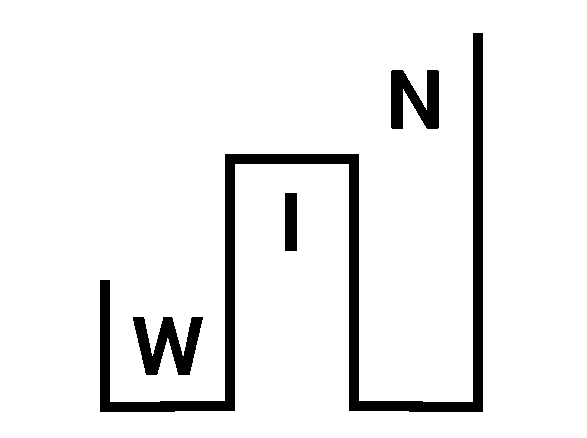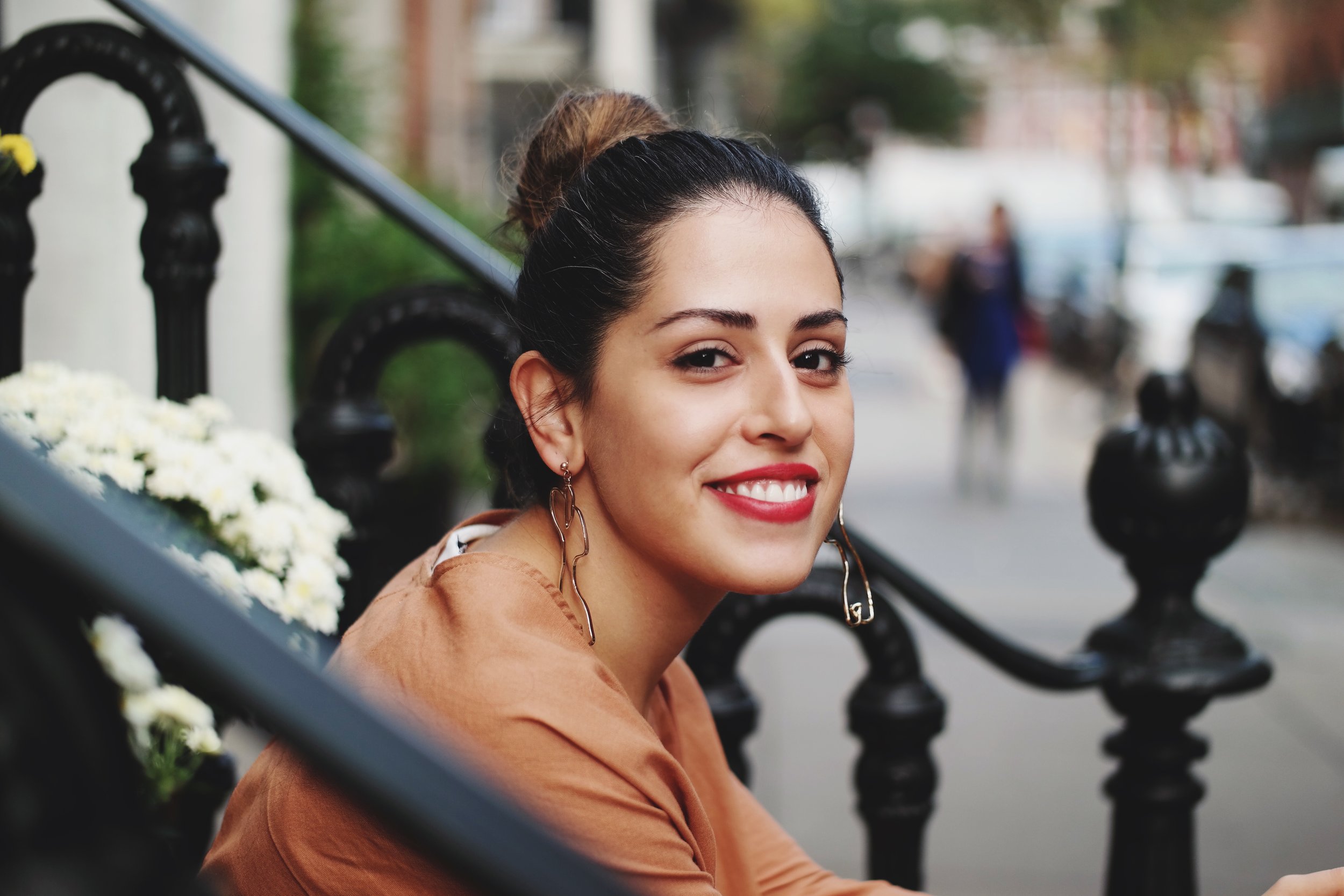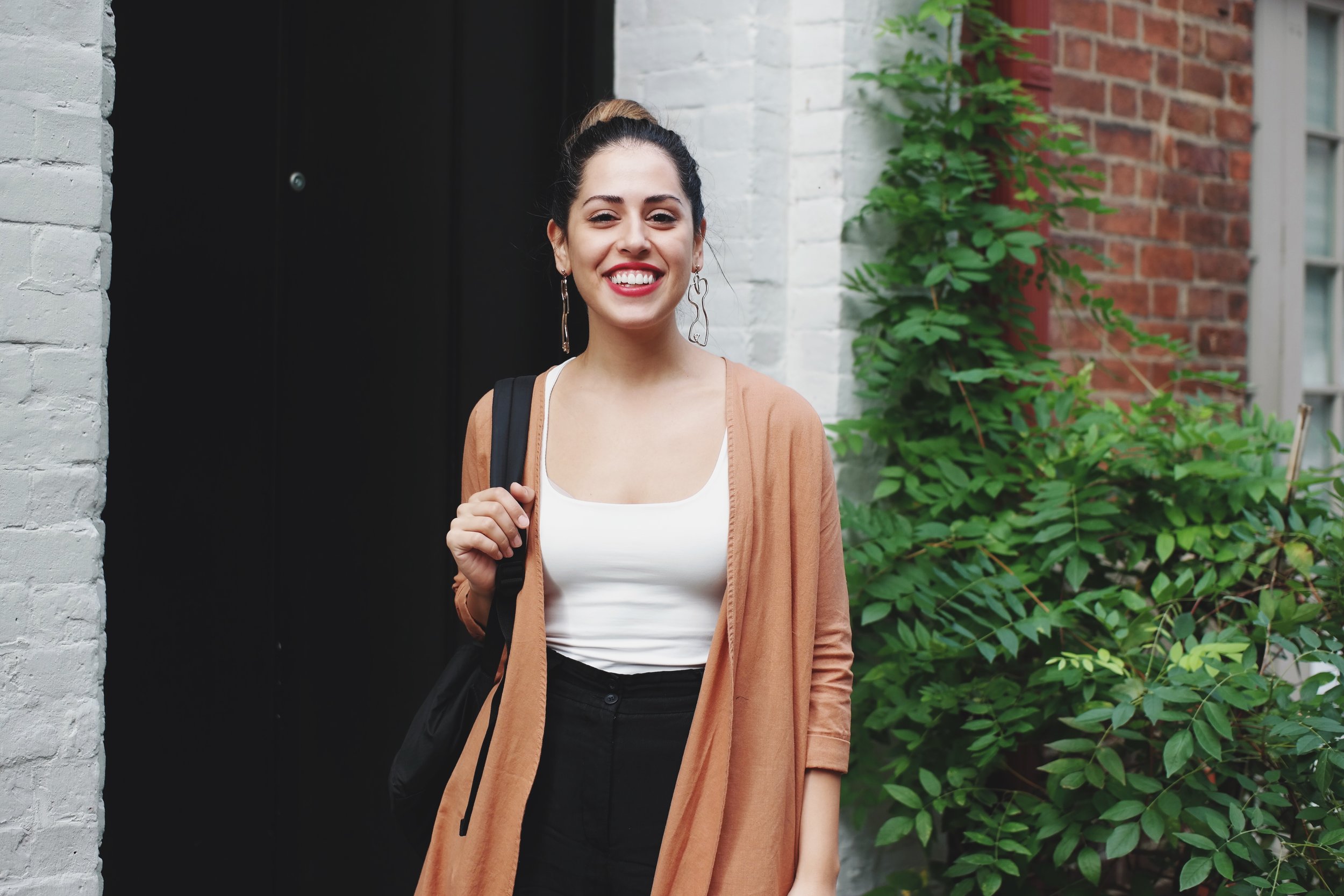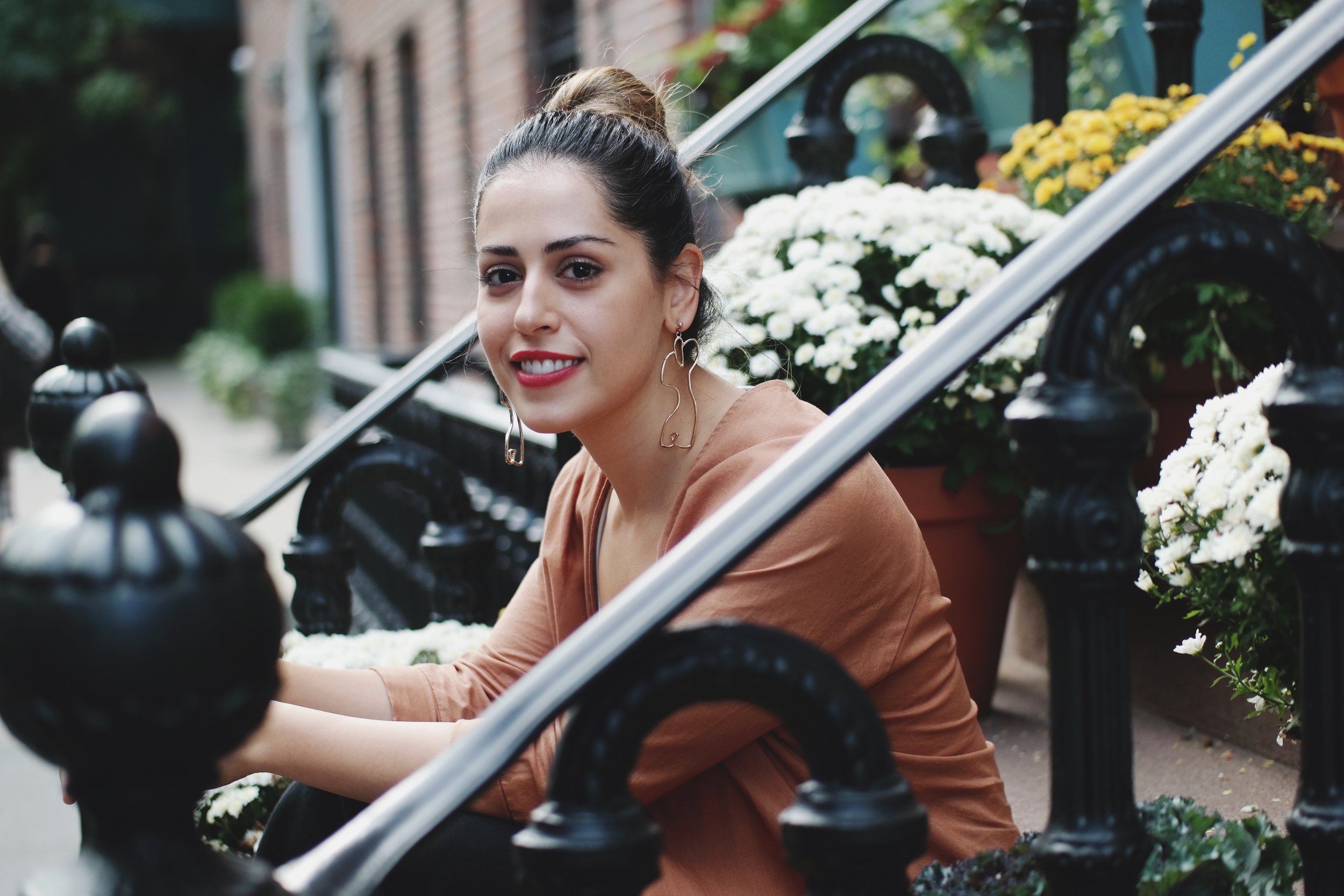WIN Spotlight: Aya Jaffar
Welcome to a new edition of "WIN Spotlight", our ongoing series that celebrates inspirational women in our community. Each interview features a member of WIN who is championing innovation at her organization. We dig into the diverse perspectives, influencers, missions, drivers, and dreams of these leaders, and of course share practical tips.
This month, we’re very excited to feature Aya Jaffar, Senior Communication Designer at IDEO.org, and a leader in designing for social impact. Aya currently serves as IDEO.org’s WIN Ambassador, and is busy helping WIN NYC put together an amazing November event on social innovation. We met up for coffee at O Cafe and walked around the West Village on a finally Fall morning.
Who are you and what do you do?
Hey, I’m Aya (Ah-Yeah!), and I’m a Senior Communication Designer at IDEO.org. I spend my days at work either in our offices in New York, or some other place in the world working with our partner organizations on the ground. It’s sometimes physically exhausting (melatonin is the best friend to my jetlagged sleep cycle), but its mentally and emotionally stimulating and fulfilling in so many ways. I work in collaborative teams with designers from various disciplines (from writing to interaction design to business design), and we work on projects that could span weeks or months. I love the non-routine aspect of the job! When we’re not working on the actual project, we usually end up spiraling into existential conversations about the role of design in development, impact, and diversity within our space.
What are the life moments that most influenced who/where you are today?
It’s a funny business, where and how we end up where we end up. I think I can pinpoint a couple of moments in the continuum of my life that got me here. I grew up in Iraq in the early 90’s, just after the war, and still under Saddam’s control. I remember, even as a child, being attuned to the man-made structures and systems around us. Propaganda filled our lives, and hushed conversations to counter this propaganda were the norm. In school, I’d be asked to memorize a paragraph glorifying one entity and denouncing another, only for my parents to tell me the “truth” is otherwise when I get home. This “designed” world that I lived in was and still is one of the most fascinating inspirations for me as a designer. If that version of the world was designed, then why can’t we design another one?
Fast forward ten years, and I am in Canada with my family, where we emigrated, and I am applying to art schools out of high school without any prior preparation (growing up in the Middle East didn’t foster art and creativity as career pathways, so I never thought seriously about pursuing a career in the arts until I sat, staring at the college applications, deciding what I wanted to do every day of my life). I applied to design schools and crossed my fingers. And I was rejected. Two years in a row. Every time I prepared a portfolio, interviewed with faculty, and spent countless hours honing my creative skillset. And every time, I went home with a rejection and puffy eyes full of tears. I don’t know where my perseverance came from, but I guess I knew this was truly what I wanted to do, so it was a no brainer for me to keep trying. The third time I applied, I got in (!!), and the doors were suddenly wide open for me.
What is the best advice someone has given you?
My husband, Hussein, gave me one of the best advice when I was applying to graduate programs, and again when I was already at my MFA at Parsons and applying for summer internships. Every time I sat down to apply, I would tell myself the “best” places would never look at me, and so I immediately started looking at my second options as the places I deserved to be at. Hussein, thinking I was being absurd for not believing in myself, told me to suck it up and apply to the best of the best programs I dreamt of. He said “If you don’t tell these people sitting somewhere else around the world that you exist, that you are passionate, that you are capable, how are they to know you exist?”. That stuck with me. Even if we fail in the end, we believe that we stand a chance, aim high, and try our luck.
As a leader in this field, what is your advice for any woman in innovation?
I think, because of the way society has been shaped so far, women have had to fight many subtle struggles all their lives…and as a result, we’re cued up acutely to reading social settings, people’s shifting energies, connecting deeply, striving to empathize naturally, and listening more carefully. You could call it the “stuff beneath the surface”. We’re masters at it. Of course, this is not meant as a generalization or an exclusion of others being able to do that, but women the world over have had years of experience in this department. In my work, where human-centered design is the core of what we do, these strengths are crucial. My advice is to trust and cultivate those mechanisms, bring them from your personal life into the strengths you utilize in your work. Learn to articulate those strengths in you and codify them. Innovation is deeply empathetic in its origins.
Do you have any rituals or routines?
I wake up early every morning, before anyone at home wakes up, so I can have my daily dose of introversion, book reading, coffee sipping, and frankly… Just staring at the wall and thinking of nothing. Without this ritual, I’d feel like I’m floating without any grounding into my thoughts and emotions.
What do you never leave the house without and why?
My headphones. I love music, and I love New York, and I love walking through its layers, riding its subways, maneuvering the crowds with some Dmitri Shostakovich or Charles Aznavour serenading me. To me, music is the language of everything that words fail to say or translate. It’s human truth transcribed through sound, and its borderless.
What is your favorite book and why?
Ah! How long can my answer be? I love books, and have an affinity to Russian literature in general, and to Fyodor Dostoevsky in particular – I consider him one of my most important teachers. If I had to pick a book, it would have to Brothers Karamazov. It’s very Dostoyevskian: faith and doubt, good and evil, free will, and morality. Although Dostoyevsky is far from unbiased, I love him because his insight into human psychology is so deep such that you love and understand each of his conflicting characters.
I also absolutely love John Steinbeck’s East of Eden (I regularly pick it up with an urge to re-read it). Italo Calvino’s Invisible Cities and Baron In The Trees, and Alexander Pushkin’s Eugene Onegin (the James E. Falen translation specifically).
Name a fundamental human truth you recently realized.
Your truth is true, their truth is true, and my truth is true. Even if they are contradictory. They are all true.
What product, service, or industry do you think is most ripe for innovation? Why?
The development sector for sure! It’s why I come to work everyday! It’s such an outdated and inefficient system inhabited by people with good intentions and bad practices. So much effort, time, and money is wasted everyday to “fix” the world’s most urgent humanitarian situations. I think the space for innovation within development is juicy and the opportunities endless.
What is your favorite quotation?
“Be patient toward all that is unsolved in your heart and try to love the questions themselves, like locked rooms and like books that are now written in a very foreign tongue. Do not now seek the answers, which cannot be given you because you would not be able to live them. And the point is, to live everything. Live the questions now. Perhaps you will then gradually, without noticing it, live along some distant day into the answer.” — Rainer Maria Rilke
Photos & interview done by Katie Burwick
WIN: Women in Innovation Copyright (c) 2018 All rights reserved. This blog post may not be reproduced or repurposed without written permission from WIN: Women in Innovation (501(c)3). This blog post is provided for your personal use only.












